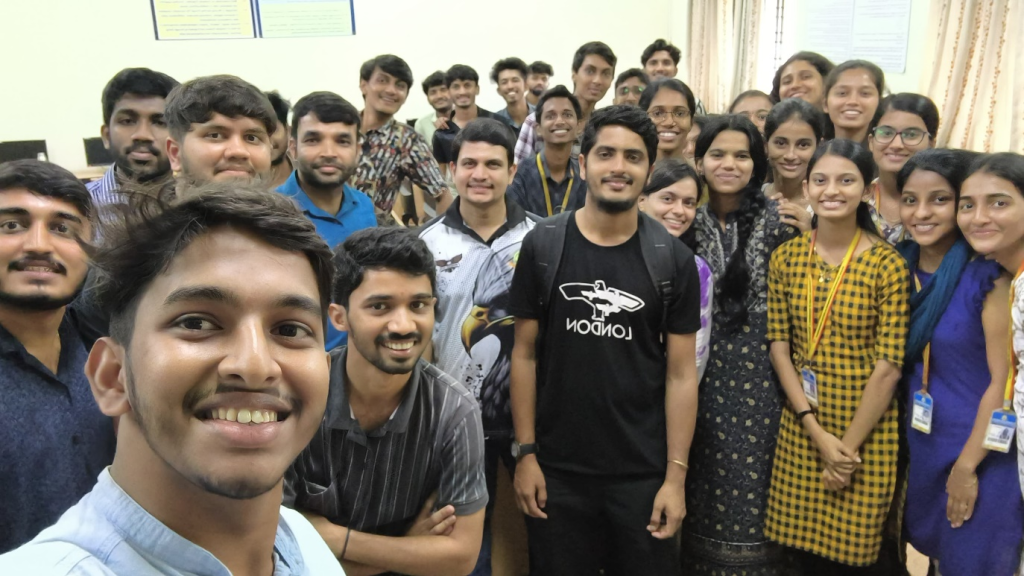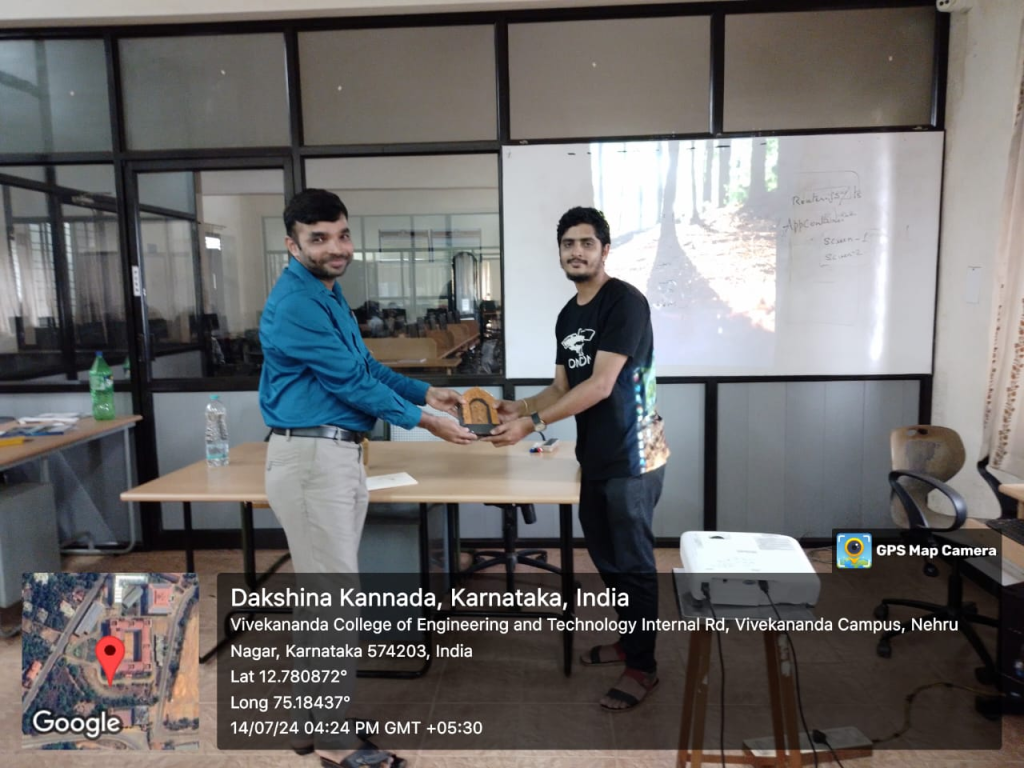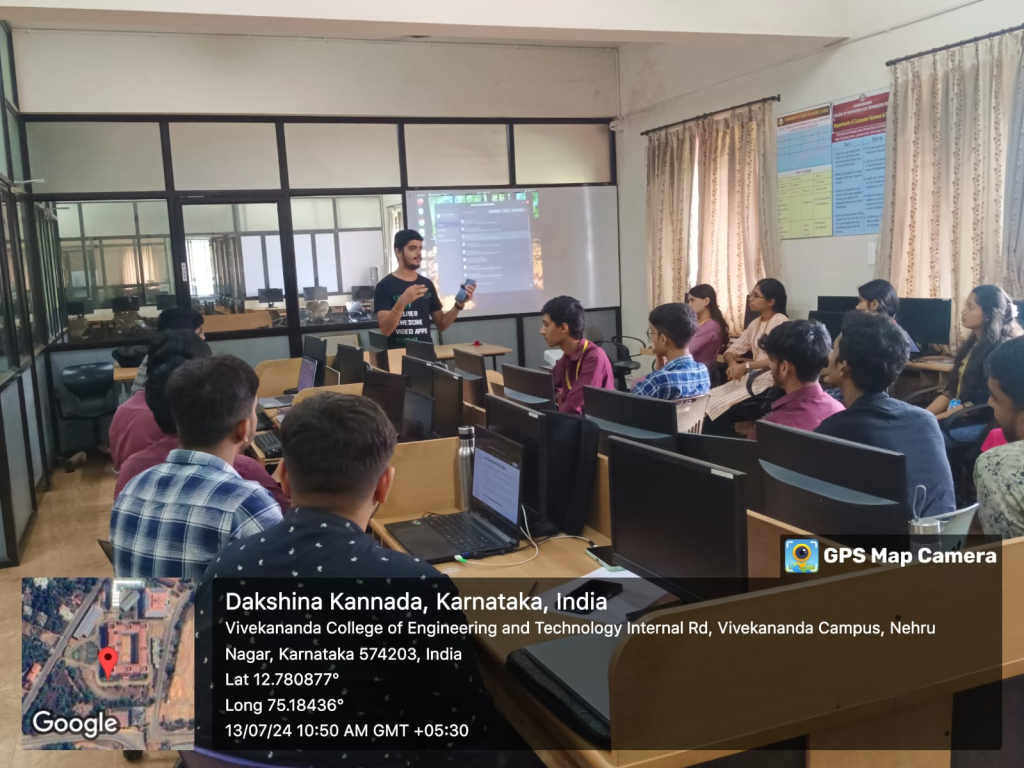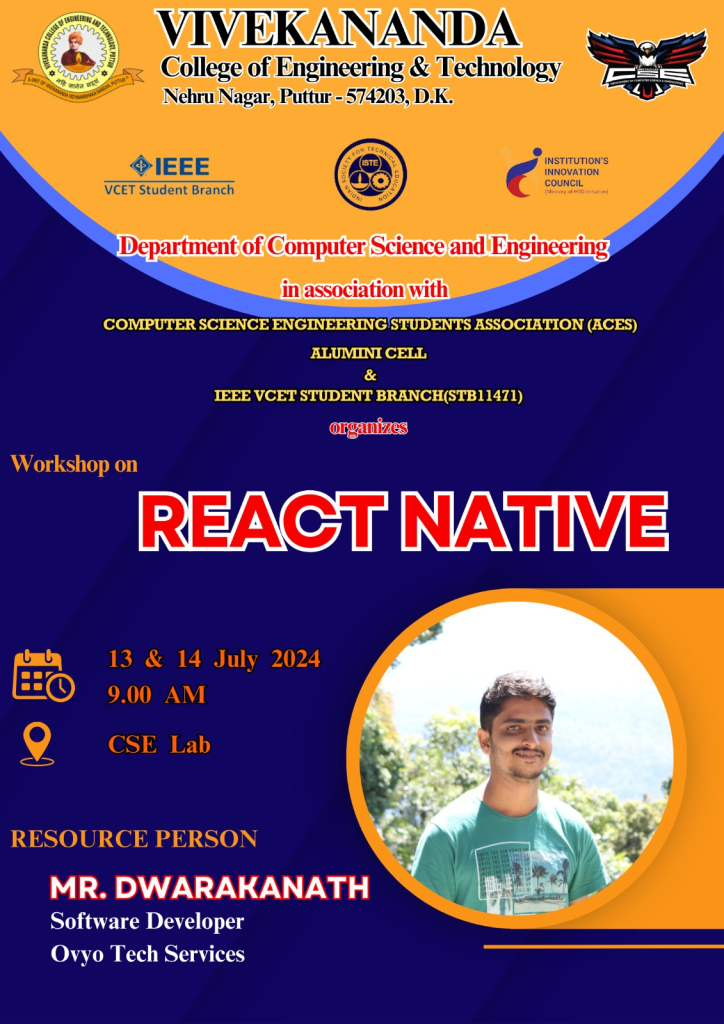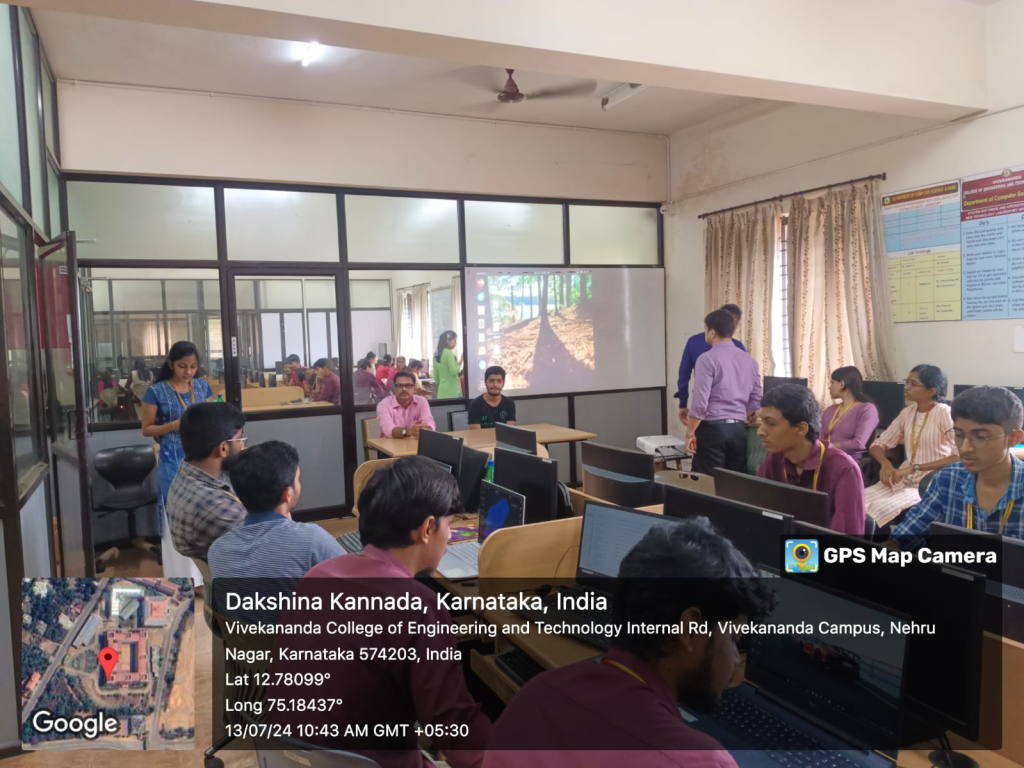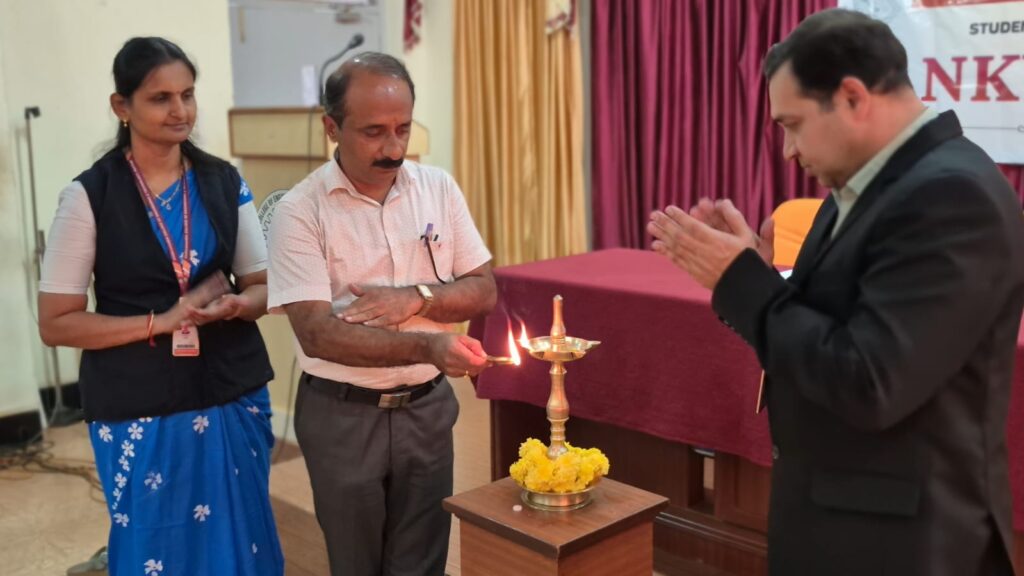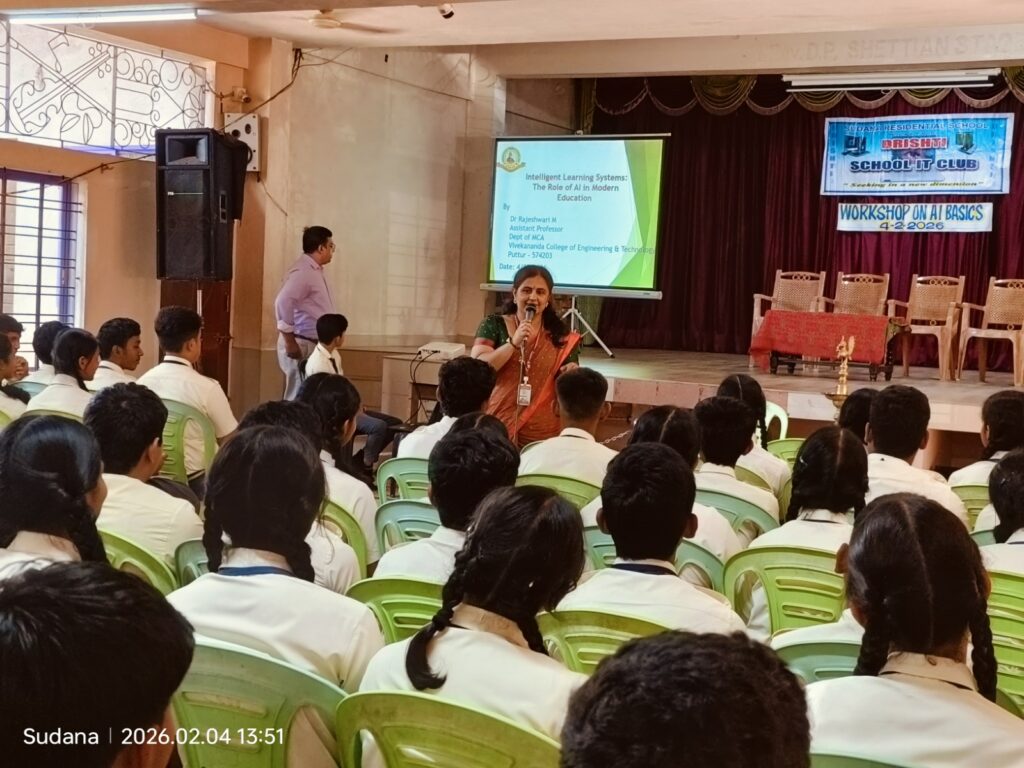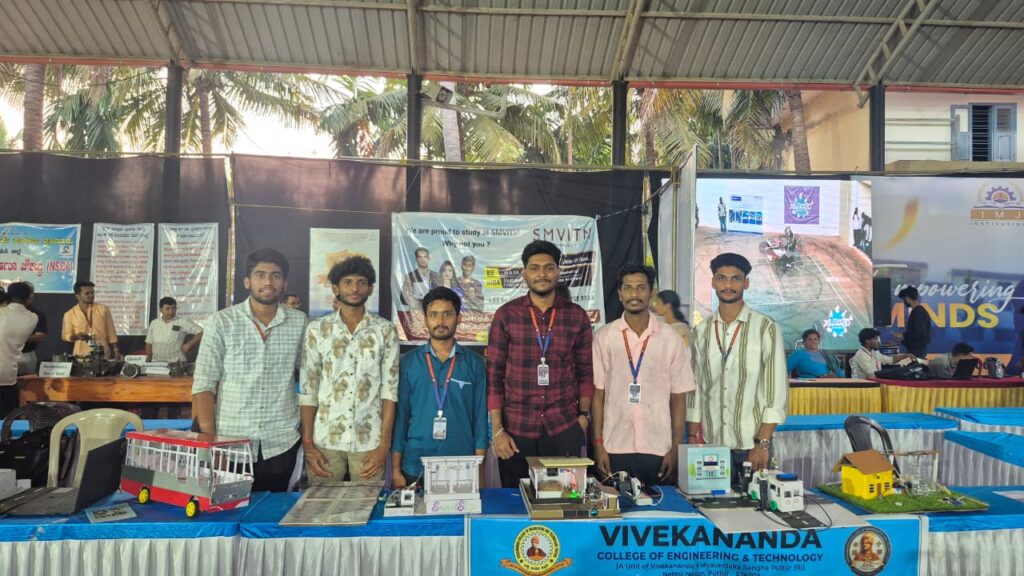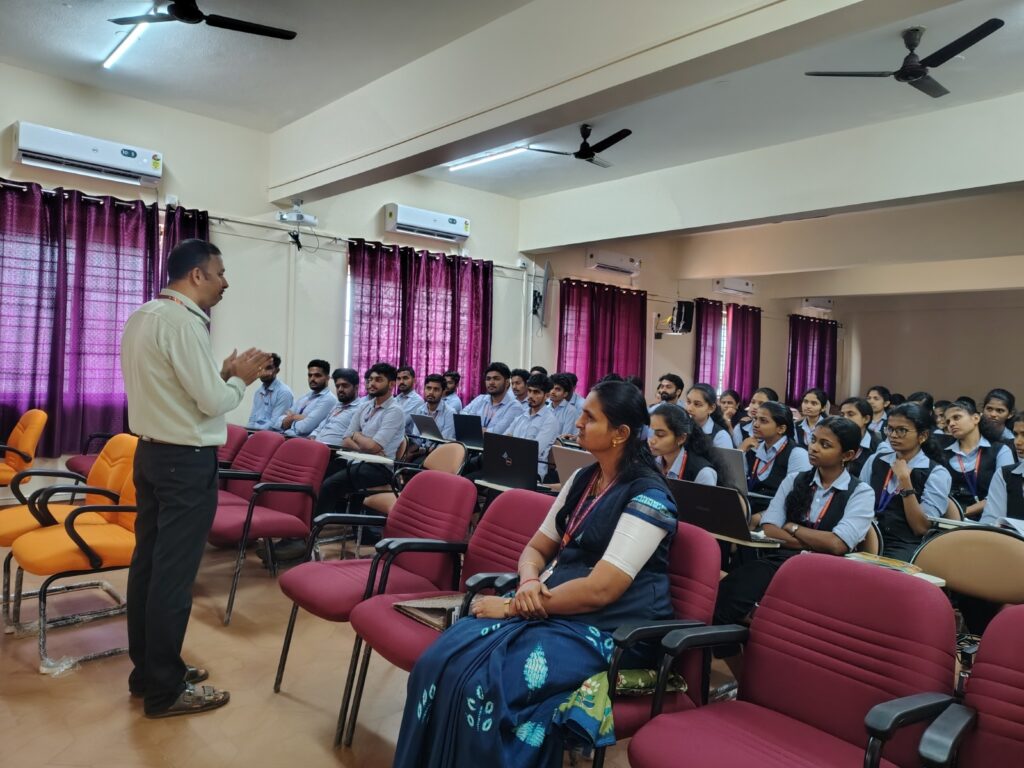The Department of Computer Science and Engineering of Vivekananda College of Engineering and Technology, Puttur in association with the Computer Science and Engineering Student Association (ACES), Alumni Cell, and IEEE VCET Student Branch (STB11471), organized a comprehensive workshop on React Native. The workshop took place over two days, 13th and 14th July 2024, and was aimed at providing students with practical knowledge and hands-on experience in developing mobile applications using React Native.The resource person for the workshop was Mr. Dwarakanath, an enthusiastic software developer from Ovyo Tech Services. With extensive experience in the field, Mr. Dwarakanath guided the participants through the intricacies of React Native development.
On Day 1 of the workshop, participants embarked on a foundational journey into React Native development and JavaScript programming. The day began with setting up the development environment necessary for React Native, ensuring each participant had the tools like Node.js, and VSCode installed on their personal PC.
On Day 2 of the workshop, participants delved deeply into the critical aspect of navigation within React Native applications, highlighting its importance in creating intuitive and user-friendly mobile experiences. The day commenced with an intensive exploration of navigation techniques, where participants learned how to seamlessly transition between different screens and manage navigation flows effectively. This included implementing navigation stacks, tabs, and drawers, essential for organizing and structuring app content.
The hands-on session was particularly pivotal as participants applied their navigation skills to build a sample mobile application. They designed and developed multiple screens, including a robust home page and other functional components, focusing on fluid navigation transitions that enhance user engagement. Integrating various React Native libraries further enriched their applications with advanced navigation features and enhanced user interfaces. This practical approach not only strengthened technical proficiency but also underscored the iterative nature of app development.
Overall, Day 2 underscored the significance of navigation in mobile app design using React Native, equipping participants with essential skills to create seamless and intuitive user experiences. By navigation techniques and implementing them in practical projects, participants gained invaluable insights into optimizing app usability and functionality, setting a strong foundation for future development endeavors. The React Native workshop was a remarkable success, as it not only equipped students with creative skills in mobile application development but also fostered a deep sense of engagement and enthusiasm among participants.
